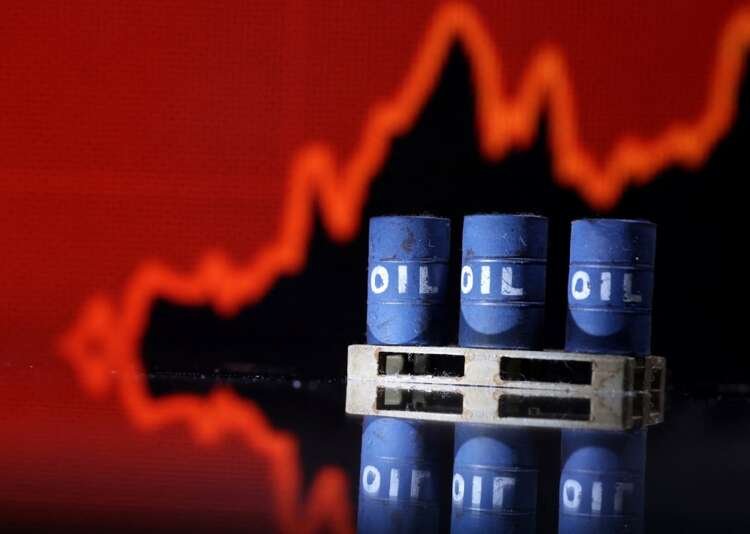Oil edges higher on Russian supply concerns in volatile trade
Published by Jessica Weisman-Pitts
Posted on September 22, 2022
3 min readLast updated: February 4, 2026

Published by Jessica Weisman-Pitts
Posted on September 22, 2022
3 min readLast updated: February 4, 2026

By Laura Sanicola
(Reuters) -Oil settled nearly 1% higher on Thursday, paring earlier gains as the market focused on Russian oil supply concerns, rebounding Chinese demand, and as the Bank of England hiked interest rates less than some had expected.
Brent crude futures settled up 63 cents, or 0.7%, at $90.46 after rising by more than $2 earlier in the session.
U.S. West Texas Intermediate (WTI) crude settled up 55 cents, or 0.7%, at $83.49, after rising by more than $3 earlier in the session.
Russia pushed ahead with its biggest conscription since World War Two, raising concerns an escalation of the war in Ukraine could further hurt supply.
“(Russian President Vladimir) Putin’s bellicose rhetoric is what’s propping up this market,” said John Kilduff, partner at Again Capital LLC in New York.
Supply constraints from the Organization of the Petroleum Exporting Countries (OPEC) added further support, analysts said.
“OPEC crude exports have leveled off from a strong increase at the start of this month,” said Giovanni Staunovo, commodity analyst at UBS.
The European Union is considering an oil price cap, tighter curbs on high-tech exports to Russia and more sanctions against individuals, diplomats said, responding to what the West condemned as an escalation in Moscow’s war in Ukraine.
The European Securities and Markets Authority (ESMA) is also considering a temporary break on energy derivatives as prices have risen following Russia’s invasion of Ukraine in February.
The parameters of such a mechanism should be set at the EU level to apply to all platforms that trade energy derivatives, it said.
Crude oil demand in China, the world’s largest oil importer, is rebounding, having been dampened by strict COVID-19 restrictions.
The Bank of England raised its key interest rate by 50 basis points to 2.25% and said it would continue to “respond forcefully, as necessary” to inflation.
The rate hike was “less than markets had been pricing and defying some expectations that UK policymakers might be forced into a larger move,” ING bank said.
Turkey’s central bank unexpectedly cut its policy rate by 100 basis points to 12%, when most central banks around the world are moving in the opposite direction.
Following the U.S. Federal Reserve’s hefty 75 bps rise on Wednesday, rate increases also came thick and fast from the Swiss National Bank, Norges bank and Indonesia’s central bank, and the South African Reserve Bank.
Interest rate hikes to quell inflation have weighed on equities, which often move in tandem with oil prices. Rate increases can curb economic activity and demand for fuel.
“This just shows how synchronized this current tightening cycle is,” Deutsche Bank said.
(Additional reporting by Rowena Edwards in London, Muyu Xu in SingaporeEditing by Kirsten Donovan, David Gregorio and Marguerita Choy)
Brent crude oil is a major trading classification of crude oil originating from the North Sea. It serves as a benchmark for oil prices worldwide.
West Texas Intermediate (WTI) is a grade of crude oil used as a benchmark in oil pricing. It is sourced from the U.S. and is known for its light and sweet characteristics.
The Organization of the Petroleum Exporting Countries (OPEC) is a group of oil-producing countries that coordinate their oil production policies to stabilize oil prices.
Interest rates represent the cost of borrowing money or the return on savings, expressed as a percentage of the principal amount. They are influenced by central banks to control inflation.
Economic growth refers to the increase in the production of goods and services in an economy over time, typically measured by the rise in Gross Domestic Product (GDP).
Explore more articles in the Top Stories category











